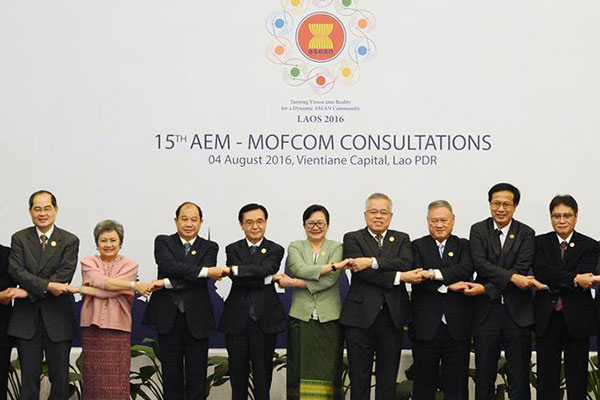|
News
|
You are here :News China, ASEAN eye closer economic ties
By:Xinhua Update:2016-08-08
As ASEAN economic ministers met in the Lao capital this week for the 48th ASEAN Economic Ministers Meeting (AEM) as well as talks with their partners, China and ASEAN took the opportunity to reiterate their will to further boost cooperation. The China-ASEAN relations have grown to a level that exceeds the expectations 25 years ago, said Chinese Minister of Commerce Gao Hucheng after meeting with his ASEAN counterparts. “Our developments, from economic to social fields, are tightly bound to one another,” he told reporters on the sidelines of the AEM meeting. Chinese leaders have vowed to build a community of common destiny with ASEAN as this year marks the 25th anniversary of the establishment of China-ASEAN dialogue relationship. Bilateral trade reached $472 billion last year, up from $7.96 billion in 1991, with an annual growth rate of 18.5 percent. Despite the uncertainty in the global economy, China maintains its position as ASEAN’s largest trading partner while ASEAN is China’s third biggest. By the end of May, their two-way investment exceeded $160 billion. The two sides, which signed an agreement to upgrade their free trade area (FTA) late last year, are targeting bilateral trade at $1 trillion by 2020. It is timely to further strengthen ASEAN-China trade and economic cooperation, economic ministers from both sides said in a statement issued after their meeting. Gao said participants at the meeting shared the same concern over the slow recovery of global economy and the increasing emergence of new challenges, who jointly called for more attention on global cooperation and warned against excessive trade protectionism. |
| 中文 | English | Thailand | Vietnam | Indonesia | Malaysia | Philippine | Singapore | Brunei | Laos | Burma | Cambodia |

|
help |

|
online consulting |

